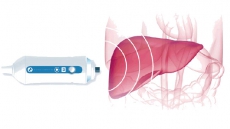A certain type of brainwave plays a key role in our sensitivity towards touch and driving. The right brain rhythm can make people have more perceptual and attentive powers, researchers say.
By striking up the right rhythm in the right brain region at the right time, neuroscientists at Brown University managed to endow mice with greater touch sensitivity than other mice, making hard-to-perceive vibrations suddenly more vivid to them.
The findings offer the first direct evidence that "gamma" brainwaves in the cortex affect perception and attention.
"We found that under certain conditions, we can make a super-perceiving mouse," added Christopher Moore, an associate professor of neuroscience at Brown University.
In lab experiments, Moore and the team used optogenetics " a technique of using light to control the firing patterns of neurons " to generate a gamma rhythm by manipulating inhibitory interneurons in the primary sensory neocortex of mice. That part of the brain controls a mouse's ability to detect faint sensations via its whiskers.
Mice naturally produce a 40-hertz gamma rhythm in their sensory neocortex sometimes.
Researchers optogenetically generated that gamma rhythm with precise pulses of blue light. The result was a mouse with whiskers that were about 20 percent more sensitive.
"Mice with this rhythm could more often detect the fainter vibrations we supplied to their whiskers than mice who did not have the rhythm going in their brains," Moore explained.
One of the key implications from the findings for neuroscience is that the way gamma rhythms appear to structure the processing of perception is more important than the mere firing rate of neurons in the sensory neocortex.
"Mice became better able to feel not because neurons became more active but because they were entrained by a precisely timed rhythm," Moore concluded in a paper appeared in the journal Nature Neuroscience.





